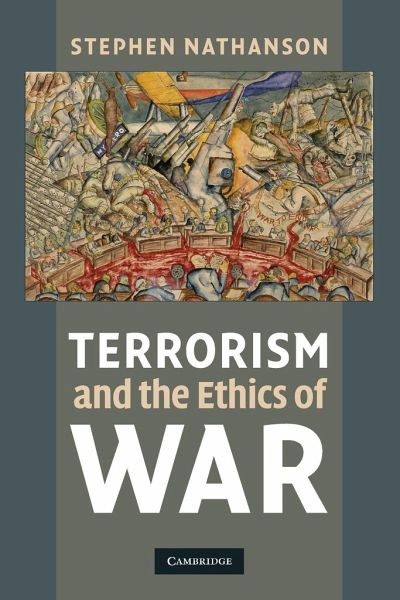
Terrorism and the Ethics of War
Versandkostenfrei!
Versandfertig in 1-2 Wochen
31,99 €
inkl. MwSt.
Weitere Ausgaben:

PAYBACK Punkte
16 °P sammeln!
Most people strongly condemn terrorism; yet they often fail to say how terrorist acts differ from other acts of violence such as the killing of civilians in war. Stephen Nathanson argues that we cannot have morally credible views about terrorism if we focus on terrorism alone and neglect broader issues about the ethics of war. His book challenges influential views on the ethics of war, including the realist view that morality does not apply to war, and Michael Walzer's defence of attacks on civilians in 'supreme emergency' circumstances. It provides a clear definition of terrorism, an analysis...
Most people strongly condemn terrorism; yet they often fail to say how terrorist acts differ from other acts of violence such as the killing of civilians in war. Stephen Nathanson argues that we cannot have morally credible views about terrorism if we focus on terrorism alone and neglect broader issues about the ethics of war. His book challenges influential views on the ethics of war, including the realist view that morality does not apply to war, and Michael Walzer's defence of attacks on civilians in 'supreme emergency' circumstances. It provides a clear definition of terrorism, an analysis of what makes terrorism morally wrong, and a rule-utilitarian defence of noncombatant immunity, as well as discussions of the Allied bombings of cities in World War II, collateral damage, and the clash between rights theories and utilitarianism. It will interest a wide range of readers in philosophy, political theory, international relations and law.




